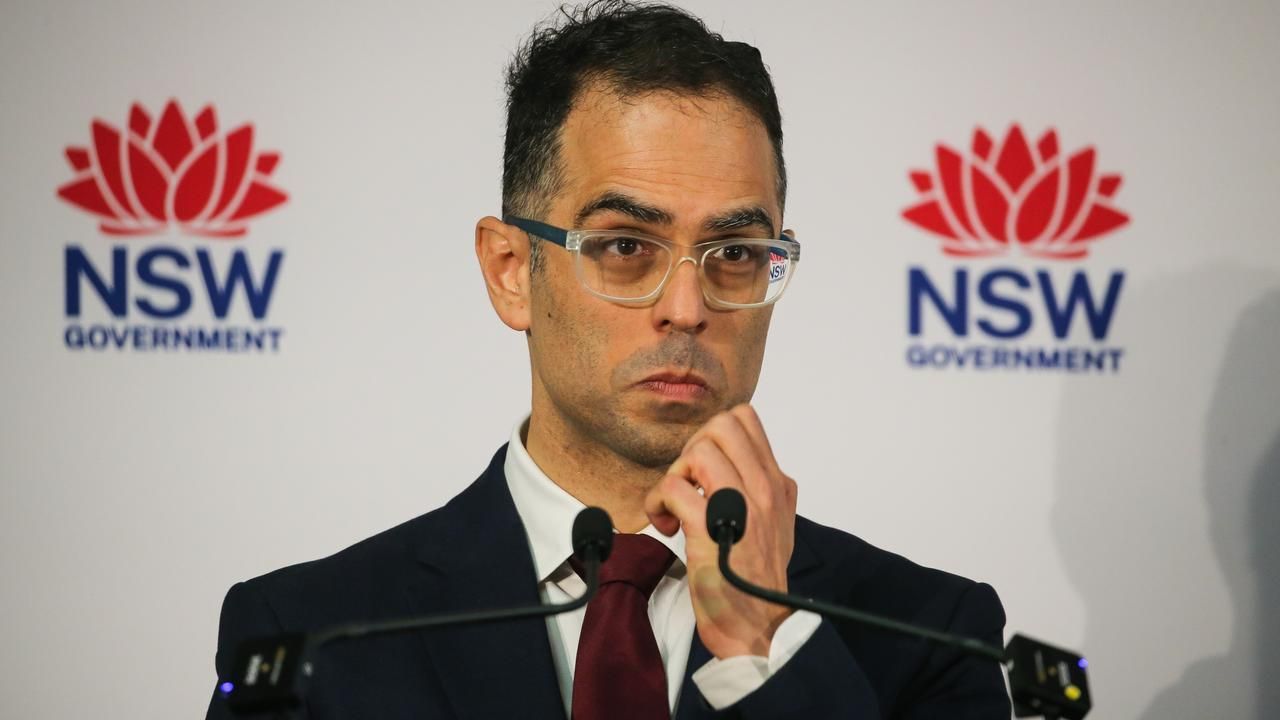The Impact of Fraudulent Bookings on the Short-Term Rental Industry and Strategies for Mitigation
Leo Wei • June 16, 2024
The Impact of Fraudulent Bookings on the Short-Term Rental Industry and Strategies for Mitigation

In recent years, the short-term rental (STR) industry has experienced exponential growth, transforming the way people travel and explore new destinations. However, with this growth comes a significant challenge that threatens the integrity and profitability of the market: fraudulent bookings. As the founder of MetaWise Property, I am keenly aware of the ramifications of such activities and the urgent need for solutions to safeguard both hosts and guests.
Impact of Fraudulent Bookings on the STR Industry
Fraudulent bookings can have devastating effects on the STR industry. These include:
Financial Losses:
Hosts suffer direct financial losses due to chargebacks and the non-payment of fraudulent guests. This impacts their bottom line and can lead to significant financial strain, especially for smaller operators.
Reputation Damage:
Incidents of fraud can tarnish the reputation of platforms and hosts alike. Negative reviews and distrust can deter potential guests from booking.
Operational Disruptions:
Fraudulent bookings can lead to operational inefficiencies, such as the need to manage cancellations, investigate fraudulent activities, and deal with the aftermath.
Increased Costs:
Implementing measures to prevent fraud incurs additional costs for hosts and platforms, potentially reducing profitability.
What Online Travel Agencies (OTAs) Need to Do
To mitigate the impact of fraudulent bookings, OTAs must adopt robust measures, including:
Enhanced Verification Processes:
Implement multi-factor authentication and stringent verification processes for both hosts and guests to ensure legitimacy.
AI and Machine Learning:
Utilize advanced algorithms to detect unusual booking patterns and flag potential fraud. Machine learning can help identify new fraud techniques as they evolve.
Transparent Communication:
Provide clear guidelines and support for hosts to report and manage suspected fraudulent activities.
Secure Payment Gateways:
Ensure that payment gateways are secure and can effectively handle chargebacks and disputes.
Collaboration with Law Enforcement:
Establish partnerships with law enforcement agencies to address fraud swiftly and effectively.
Strategies for Professional and Casual Hosts
Both professional and casual hosts must take proactive steps to protect their properties and their guests:
Professional Hosts
Comprehensive Screening: Implement thorough guest screening processes, including identity verification and background checks.
Automated Systems: Use property management systems that integrate fraud detection tools and secure payment processing.
Insurance: Invest in comprehensive insurance policies that cover fraud-related losses.
Regular Training: Stay updated on the latest fraud trends and ensure all staff members are trained to recognize and respond to suspicious activities.
Avoid Last-Minute Bookings: Limiting last-minute bookings can help reduce the risk of fraudulent activities. However, it is important to balance this with potential revenue loss, as last-minute bookings can also be a significant source of income.
Owner Hosts
Guest Communication: Engage in open and clear communication with guests before and during their stay to build trust and verify their intentions.
Manual Verification: Conduct manual checks, such as contacting guests directly and verifying their details through social media or other means.
Local Support: Establish a network of local contacts who can assist in case of emergencies or suspicious activities.
Awareness: Educate yourself about common fraud tactics and remain vigilant.
Avoid Last-Minute Bookings: Similar to professional hosts, casual hosts should consider avoiding last-minute bookings to minimize fraud risk, despite the potential decrease in revenue.
Conclusion
Fraudulent bookings pose a significant threat to the STR industry, but with concerted efforts from OTAs and hosts, it is possible to mitigate these risks. At MetaWise Property, we are committed to providing a secure and trustworthy platform for both our hosts and guests. By adopting stringent verification measures, leveraging advanced technology, and fostering a community of vigilant and informed hosts, we can collectively ensure the continued growth and success of the short-term rental industry.
Visit our website at MetaWiseBnB for more insights and resources on safeguarding your STR investments.
Best regards,
Leo Wei
Director, MetaWise Property
Share to social media
More posts

1. More Space for Comfort One of the most significant advantages of short-term rentals is the additional space they offer. Unlike hotel rooms, which can feel cramped, short-term rentals provide multiple rooms, including separate living and sleeping areas, offering you and your companions more space to spread out and relax. 2. Cost-Effective for Longer Stays For extended stays, short-term rentals can be more cost-effective than hotels. With options to book for weeks or even months, you can often secure a lower nightly rate, making it a more affordable choice for long-term trips. 3. Home-Like Amenities Short-term rentals come equipped with home-like amenities that hotels often lack. Enjoy fully furnished kitchens, laundry facilities, and private outdoor spaces. These conveniences can make your stay more comfortable and allow you to live like a local. 4. Privacy and Exclusivity Privacy is a key benefit of short-term rentals. Unlike hotels, where you share common areas with other guests, short-term rentals offer private entrances and exclusive use of the property. This is ideal for travelers seeking a more secluded and personal experience. 5. Flexibility in Location Short-term rentals are available in a variety of locations, from bustling city centers to quiet suburban neighborhoods. This flexibility allows you to choose a location that best suits your travel needs, whether you want to be close to attractions, business centers, or enjoy a more residential setting. 6. Unique and Personalized Experiences Each short-term rental is unique, offering a personalized experience that hotels often can't match. From charming historic homes to modern city apartments, you can choose a property that reflects your style and preferences, enhancing your overall travel experience. 7. Ideal for Groups and Families Traveling with a group or family? Short-term rentals are perfect for accommodating multiple guests. With several bedrooms and larger living spaces, everyone can stay together under one roof, making it easier to enjoy your time together. 8. Local Living Experience Short-term rentals allow you to immerse yourself in the local culture and experience the destination like a resident. Shop at local markets, cook your meals, and explore neighborhoods off the beaten path, gaining a deeper connection to the place you're visiting. 9. Pet-Friendly Options For pet owners, finding pet-friendly accommodation can be a challenge. Many short-term rentals welcome pets, providing a comfortable and convenient option for traveling with your furry friends without the restrictions often imposed by hotels. 10. Enhanced Privacy and Safety In the current climate, privacy and safety are more important than ever. Short-term rentals offer a private, controlled environment, reducing the number of interactions with others and providing a safer alternative to crowded hotel settings. Choosing a short-term rental over a hotel can significantly enhance your travel experience. With more space, home-like amenities, and a personalized touch, short-term rentals provide a comfortable and cost-effective alternative for all types of travelers. Whether you're planning a family vacation, a business trip, or a solo getaway, consider MetaWise Property's short-term rentals for your next stay in Sydney. Book now to enjoy the many benefits of staying in a home away from home. Ready to experience the comfort and convenience of a short-term rental? Explore our properties and book your stay with MetaWise Property today!
2. Cost-Effective for Longer Stays For extended stays, short-term rentals can be more cost-effective than hotels. With options to book for weeks or even months, you can often secure a lower nightly rate, making it a more affordable choice for long-term trips. 3. Home-Like Amenities Short-term rentals come equipped with home-like amenities that hotels often lack. Enjoy fully furnished kitchens, laundry facilities, and private outdoor spaces. These conveniences can make your stay more comfortable and allow you to live like a local. 4. Privacy and Exclusivity Privacy is a key benefit of short-term rentals. Unlike hotels, where you share common areas with other guests, short-term rentals offer private entrances and exclusive use of the property. This is ideal for travelers seeking a more secluded and personal experience. 5. Flexibility in Location Short-term rentals are available in a variety of locations, from bustling city centers to quiet suburban neighborhoods. This flexibility allows you to choose a location that best suits your travel needs, whether you want to be close to attractions, business centers, or enjoy a more residential setting. 6. Unique and Personalized Experiences Each short-term rental is unique, offering a personalized experience that hotels often can't match. From charming historic homes to modern city apartments, you can choose a property that reflects your style and preferences, enhancing your overall travel experience. 7. Ideal for Groups and Families Traveling with a group or family? Short-term rentals are perfect for accommodating multiple guests. With several bedrooms and larger living spaces, everyone can stay together under one roof, making it easier to enjoy your time together. 8. Local Living Experience Short-term rentals allow you to immerse yourself in the local culture and experience the destination like a resident. Shop at local markets, cook your meals, and explore neighborhoods off the beaten path, gaining a deeper connection to the place you're visiting. 9. Pet-Friendly Options For pet owners, finding pet-friendly accommodation can be a challenge. Many short-term rentals welcome pets, providing a comfortable and convenient option for traveling with your furry friends without the restrictions often imposed by hotels. 10. Enhanced Privacy and Safety In the current climate, privacy and safety are more important than ever. Short-term rentals offer a private, controlled environment, reducing the number of interactions with others and providing a safer alternative to crowded hotel settings. Choosing a short-term rental over a hotel can significantly enhance your travel experience. With more space, home-like amenities, and a personalized touch, short-term rentals provide a comfortable and cost-effective alternative for all types of travelers. Whether you're planning a family vacation, a business trip, or a solo getaway, consider MetaWise Property's short-term rentals for your next stay in Sydney. Book now to enjoy the many benefits of staying in a home away from home. Ready to experience the comfort and convenience of a short-term rental? Explore our properties and book your stay with MetaWise Property today!

As a property owner in the short-term rental (STR) industry, safeguarding your investments and ensuring financial transparency are crucial for long-term success. Utilizing a robust trust accounting system is not just about compliance; it's about building trust and securing your financial future. Here's why trust accounting compliance matters to you and how it can enhance the management of your property portfolio. Why Trust Accounting is Important for Property Owners Protection of Funds: Trust accounts ensure that your funds are kept separate from the operational accounts of property managers. This segregation of funds provides a layer of protection, ensuring that your money is not used for other purposes. You can rest assured that your investment is secure. Regulatory Compliance: Using a trust account demonstrates a commitment to regulatory compliance. This reassures you that your funds are being managed according to the law, which is especially important in jurisdictions with strict trust account regulations. Accurate Financial Reporting: Trust accounting systems provide detailed and accurate financial reports, helping you to track income, expenses, and overall financial performance of your properties. This level of detail is essential for effective financial planning and decision-making. Building Trust: By using trust accounts, property managers can build trust with you, showing that they are responsible and trustworthy stewards of your funds. This trust is vital for long-term business relationships and can lead to increased confidence and peace of mind. Key Features of Advanced Trust Accounting Systems Comprehensive Compliance: Advanced trust accounting systems are designed to meet trust accounting laws and regulations of multiple regions, ensuring your investments are managed within legal frameworks. Detailed Reporting: You will receive detailed financial reports, including end-of-month summaries, pie charts, and transaction details. This makes it easier to understand your financial status and make informed decisions. Seamless Integration: These systems integrate with Property Management Systems (PMS), ensuring that all booking-related financial data is automatically updated. This enhances efficiency and accuracy. Mobile-Friendly Access: Access your financial data and reports from your mobile device, providing convenience and real-time updates wherever you are. Enhanced Security: High-level encryption and data replication ensure the security and integrity of your financial data, protecting against breaches and data loss. Benefits for Property Owners Adopting an advanced trust accounting system brings several benefits: Peace of Mind: Knowing that your funds are managed separately and securely provides peace of mind, allowing you to focus on other aspects of your investments. Transparency and Trust: Detailed and transparent reporting fosters a trusting relationship with your property manager, ensuring you are always informed about your financial status. Efficiency: Automation of financial processes and seamless integration with PMS saves time and reduces manual errors, ensuring your property management is efficient and reliable. Scalability: As your property portfolio grows, advanced trust accounting systems can handle increasing volumes of data and transactions, ensuring compliance and efficiency are maintained. By leveraging an advanced trust accounting system, you can ensure regulatory compliance and build a robust framework of trust and reliability for your property investments. This strategic move will position you as a savvy investor, known for integrity and excellence in property management. This approach not only secures your current investments but also enhances your potential to attract more property opportunities and grow your portfolio in the competitive STR industry.

NSW Budget 2024-2025: Implications for the Real Estate Industry The NSW Budget for 2024-2025, presented by Treasurer Daniel Mookhey, outlines several initiatives and allocations that will significantly impact the real estate industry. From housing development to infrastructure investment, here’s a detailed look at what this budget means for real estate professionals, investors, and tenants, with a focus on rental markets, both short-term and long-term. Housing and Infrastructure Investment Housing and Infrastructure Plan ($2.2 billion): • The budget includes a substantial $2.2 billion Housing and Infrastructure Plan aimed at addressing housing shortages and supporting community infrastructure. This plan will help facilitate new housing developments, easing the pressure on housing supply and potentially stabilizing property prices . Impact on Real Estate Development: • Developers can expect increased opportunities with government-backed projects. The emphasis on infrastructure supports the growth of new communities and the expansion of existing ones, making real estate development more lucrative in the near term. Rental Market Long-Term Rentals: • Increased Housing Supply: The Housing and Infrastructure Plan is likely to boost the availability of rental properties, which may help moderate rental prices in the long term. An increase in housing stock can alleviate some of the current high demand, especially in urban areas. • Cost of Living Relief: Measures aimed at cost-of-living relief, such as subsidies and support for essential services, can increase disposable income for renters, potentially influencing rental affordability and stability . Short-Term Rentals: • Tourism and Infrastructure: With significant investments in transport and infrastructure ($72.3 billion), regions popular with tourists might see a surge in short-term rental demand. Enhanced transport facilities make previously less accessible areas more attractive for short-term stays . • Regulatory Environment: The budget does not specifically address short-term rental regulations, but the overall boost in infrastructure and housing supply can indirectly impact this segment. More housing options might balance the market dynamics, reducing the strain on both short-term and long-term rental supplies. Economic and Fiscal Policies Budget Repair and Fiscal Management: • The budget’s focus on fiscal responsibility and reducing debt is crucial. Lower debt levels and improved fiscal health can lead to a more stable economic environment, fostering investor confidence in the real estate market  . • Increased Coal Royalties: The increase in coal royalties and other fiscal measures can impact regions dependent on mining and resources. This might influence property values and rental demand in such areas. Health and Education Infrastructure Healthcare Investment ($13.8 billion): • Significant investment in healthcare facilities will make areas with new or upgraded hospitals more attractive for families and retirees, potentially increasing property values and rental demand in those locales . Education Facilities ($9.8 billion): • Upgrading schools and TAFE campuses can enhance the desirability of neighborhoods, impacting both property values and rental markets. Proximity to quality education institutions is a major consideration for families and can drive demand for housing in these areas . Conclusion The NSW Budget for 2024-2025 presents a mixed bag for the real estate industry. While the emphasis on infrastructure and housing supply is promising, the impacts on rental markets will vary between short-term and long-term effects. Increased housing stock may stabilize long-term rental prices, while improvements in transport and infrastructure can boost the attractiveness of short-term rentals. Overall, the budget supports a more stable and potentially prosperous environment for real estate development and investment. For more detailed analysis and ongoing updates, real estate professionals and investors should monitor the implementation of these budget measures and their impacts on the market dynamics. References: • NSW Budget 2024-25 Overview. Retrieved from NSW Government Budget Papers • A Fresh Start for NSW. NSW Government Media Release, 19 September 2023. Retrieved from NSW Government • NSW Treasury. Pre-Budget Submissions for 2024-25. Retrieved from NSW Treasury
